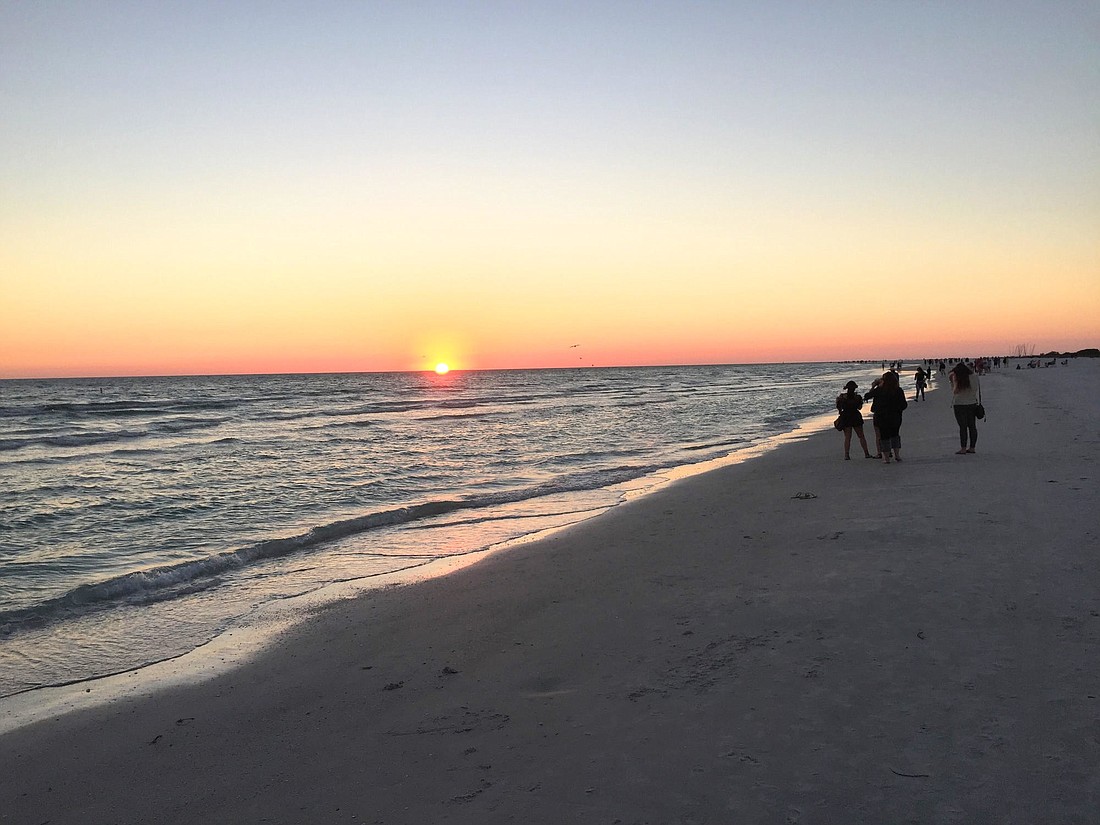- May 1, 2025
-
-
Loading

Loading

A judge is scheduled to hear testimony beginning Dec. 12 outlining the cases for and against dredging Big Pass to renourish Lido Key, a pivotal point in a dispute between residents of Lido and Siesta keys that began in 2013.
The administrative hearing focuses on the Florida Department of Environmental Protection’s decision to issue a permit for taking up to 1.3 million cubic yards of sand from Big Pass, which has not been dredged before. The Lido Key renourishment is a joint project between the U.S. Army Corps of Engineers and the city of Sarasota.
Two Siesta-based organizations, the Siesta Key Association and Save Our Siesta Sands Two, filed an appeal challenging the permit. The groups contend dredging Big Pass will jeopardize the Siesta shoreline to the south.
Advocates for the project — including the Lido Key Residents Association — call the need for renourishment urgent and the criticism overblown. They say the project is designed to replenish critically eroded segments of Lido’s shoreline, and Army Corps computer models predict moving sand from Big Pass won’t adversely affect surrounding areas.
SKA President Catherine Luckner pushed back against narratives painting the dispute as Lido versus Siesta. She said the organization simply wants the best outcome possible for the entire region.
“We’re not trying to get money out of anybody,” Luckner said. “We don’t even want the sand — we just want them to do a good project.”
Lido Key residents see it another way. Carl Shoffstall, president of the Lido Key Residents Association, contends Siesta Key’s efforts to block the dredging jeopardizes the safety of Lido properties.
“In my opinion, they should be responsible for any damage that occurs out there,” Shoffstall said.
Despite the conflicting perspectives of the two barrier islands, one thing is undeniable: The dispute has become a high-priced undertaking for both sides.
Luckner said the SKA has already spent at least $100,000 from the organization’s savings and member donations, and needs to raise $40,000 more moving forward.
That total includes lawyer’s fees, the cost of expert witnesses and the cost of bringing everyone to the area for the hearing. A delay that pushed the hearing from August to December led to more expenses as the group used that time to find more experts.
Luckner said the case is worth the money.
“There’s really not a price,” she said. “I do believe that.”
A Nov. 10 email to the Lido Key Residents Association says the organization will need at least $150,000 to put toward legal fees for next week’s hearing. In addition to soliciting donations, the residents are selling T-shirts for $15 each to raise money and awareness for their cause.
Shoffstall did not disclose the association’s fundraising total to date, but he said residents are united behind the effort to move forward with the dredge.
He’s hopeful an affirmative ruling in the hearing will allow the city and Army Corps to proceed with their search for federal funding.
“It’s just a matter of getting going,” Shoffstall said.
Peter van Roekens, president of Save Our Siesta Sands 2, also declined to share how much money his organization has spent or its fundraising goal, but the group is still asking for donations.
“We’re counting on them to come through,” he said.
The Florida Wildlife Federation was initially one of the groups challenging the DEP’s decision to issue a permit, but it is no longer participating in this hearing.
“We support the case,” said FWF President Manley Fuller. “We’re standing back if need-be to intervene or file a federal action if it gets to that point.”
Luckner, too, is ready to take federal action. But she hopes that the hearing will resolve Siesta Key residents’ issues with the project.
The hearing is expected to start at 9 a.m. Dec. 12 in Courtroom 2 on the sixth floor of the Sarasota County Justice Center at 20171 Ringling Blvd.
Even though the hearing is scheduled to end by Dec. 19, City Attorney Robert Fournier said a judge could take several months to issue a decision.
And, if either side isn’t satisfied with the judge’s ruling, they do have the right to appeal.